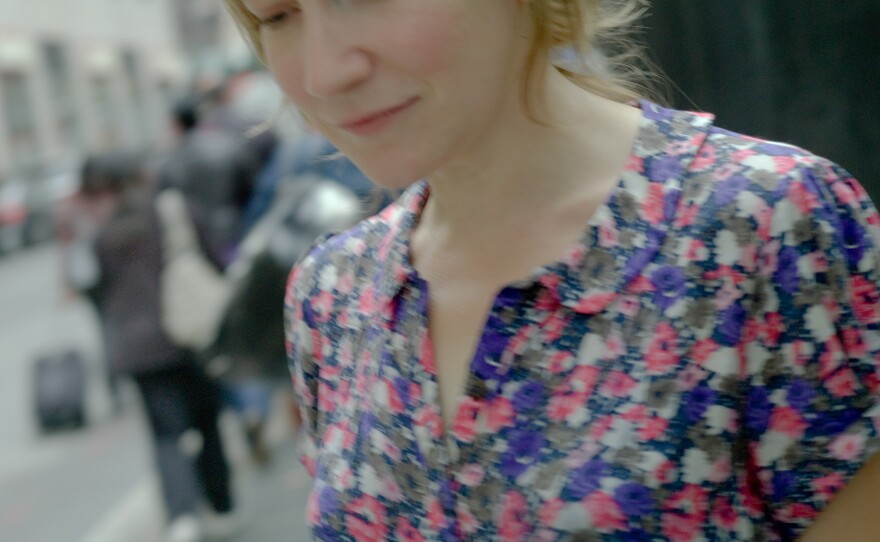The unexamined life isn't worth living, according to Socrates, and you'd be hard-pressed to find a writer who disagrees. Few, though, have taken it to the extreme that Toronto author Sheila Heti does with How Should a Person Be? The relentlessly introspective "novel from life" earned critical raves when it was released in Canada in 2010. The book chronicles Heti's struggle — sometimes hilarious, sometimes heartbreaking — to answer the seemingly simple questions: "What was the right way to react to people? Who was I to talk to at parties? How was I to be?"
Based heavily on the lives of the now-35-year-old author and her friends, How Should a Person Be? follows Heti (also the novel's narrator) as she tries to sort out where (if anywhere) her life is taking her — and whether she should try to transform herself into someone else. Suffering from crippling writer's block and fresh out of a divorce, she finds a job in a hair salon and starts recording her conversations with her friends Margaux and Sholem, both brilliant, long-suffering artists. At the same time, she struggles to make sense of her relationship with her lover, a handsome but mediocre painter named Israel with a penchant for sexual perversity.
It's difficult to classify How Should a Person Be? — and you get that that's the point. Technically a novel, the book includes emails and transcripts of real conversations between Heti and her friends. Fiction? Nonfiction? It takes about a page for the reader to stop caring. Heti's book is so boldly original, each sentence so gorgeously rendered, that the distinction between exceptional novel and exceptional memoir seems irrelevant. She writes cinematically, but with the cockeyed emotional realism of filmmakers like Miranda July and Lena Dunham.
The novel is philosophical and deeply felt, but also unhinged. "There's so much beauty in this world that it's hard to begin," Heti writes. "I'm just sitting here, vibrating in my apartment, at having been given this one chance to live."

In the hands of a less nuanced writer, a shambling text about a group of precocious artists could quickly have turned unbearably twee. But there's nothing precious about Heti's book; as fun as it is to read, it's also whip-smart, earnest and, on occasion, unsettlingly naked. After receiving an angry email from Margaux, Heti considers the possibility of losing her as a friend: "I lay in bed and thought of cutting my wrists in the shower ... There was nothing in me that did not mourn. I knew I would always lose what was good. That was the person I would always be." It's a blunt moment from a writer without a care about keeping her cool or distance. "It is cheating," Heti writes, "to treat oneself as an object, or as an image to tend to."
Heti may or may not answer the question she poses in the title — like so much in the book, it depends on how you read it. But she might tip her hand early on when she asks (and seems to answer) another big, if rhetorical, question: "Who cares what people say? What people say has no effect on your heart."
It's a brave sentiment, but one that ultimately feels like a lie. Heti finally realizes that the workings of the heart are unknowable: "[F]or all of our fears and all of our certainty, the bonds that unite us will remain a secret, for always." Heti's prose is so smart, so delicate, you'll hope for the sequel: How Should I Let the Mystery Be?
Copyright 2023 NPR. To see more, visit https://www.npr.org. 9(MDAzMjM2NDYzMDEyMzc1Njk5NjAxNzY3OQ001))





